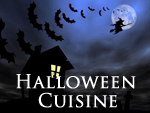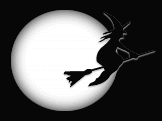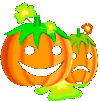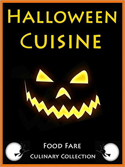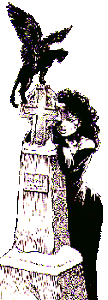Legend has it...
Halloween dates back 2,000 years, and is believed to have started with the ancient Celtic festival known as "Samhain" (pronounced sow-in). The Celts celebrated their New Year on November 1st, as it marked the end of summer and the end of harvest. The Celts also believed that on the night before the New Year - October 31st - the boundary between the worlds of the living and the dead became blurred. When "Samhain" was celebrated, it was thought that the ghosts of the dead returned to earth.
Halloween evolved from there (with variations and traditions by the Romans and the Druids among others), the holiday also known as Feralia, All Saints Day, All-Hallows, All-Hallowmas (from the middle English word "alholowmesse" meaning All Saints Day), the Scottish variation All-Hallows-Even ("evening"), and All Souls Day. These collective labels eventually became known as Halloween.
"Trick-or-Treating" most likely dates back to the All Souls Day parades. For example, in Great Britain, when peasants begged for food they were given "soul cakes." Also known as "going a-souling," children often visited neighborhood houses in hopes of being given food and money.
Dressing in costumes also has Celtic roots. People thought if they left their homes on All Hollows Eve, they might encounter ghosts. To that end, they dressed in costumes to avoid being detected by the spirits.
Halloween Trivia
The Japanese have a celebration called O-Bon, which is in memory of their deceased relatives. People place food and water in front of photographs of the dead. Bonfires and lanterns light the path for spirits to find their way back to earth.
The blue cat in Russia is believed to bring good luck. The cats are known as Russian Blue, British Blue and Burmese.
Mexicans have picnic lunches on the graves of their relatives during Halloween. It is a day of happiness, celebration and remembrance. Bread is baked, and candy is made in the form of skulls and crossbones, caskets or skeletons. Children might race through the streets with lanterns, asking for coins. Adults light bonfires, set off firecrackers and hang lights in trees to guide the souls of the dead home.
Since Halloween is said to have originated in Ireland with the Celts, it is only natural their history offers more details. The Celts were a tribe of farmers who knew the sun helped their crops grow. When autumn arrived, they feared losing their crops during winter's thrall. In order to ensure the return of the sun, the Celts began holding a festival on October 31st, lighting bonfires on hillsides. They prayed the sun would shine brightly after the cold winter was over. This is how Halloween is said to have started.
Cats were considered spirits by the Celts, who felt felines were able to predict the future. However, a black cat was known to be bad luck.
Halloween is known as "Nos Galan Gaeaf" (All Hallows Eve) in Wales. It is the night which precedes the New Year, when the wall between the two worlds of the living and the dead is removed. The dead were free to roam the earth, known to be a dangerous time to the Welsh. "Ysbryd" (ghosts) and "Coblyn" (goblins) would appear on footpaths at midnight. The two most infamous spirits were "Ladi Wen" (the lady in white), and the bone-crunching "Hwch ddu Gwta" (the tail-less black sow).
Young people would form groups and wander from house to house after dark, chanting songs. The youths were known as Gwrachod (hags or witches). After singing songs, they would be given nuts and apples, and sometimes even ale. It was believed Gwrachod hauntings brought good luck for the following year, and would expunge evil spirits from the house.
